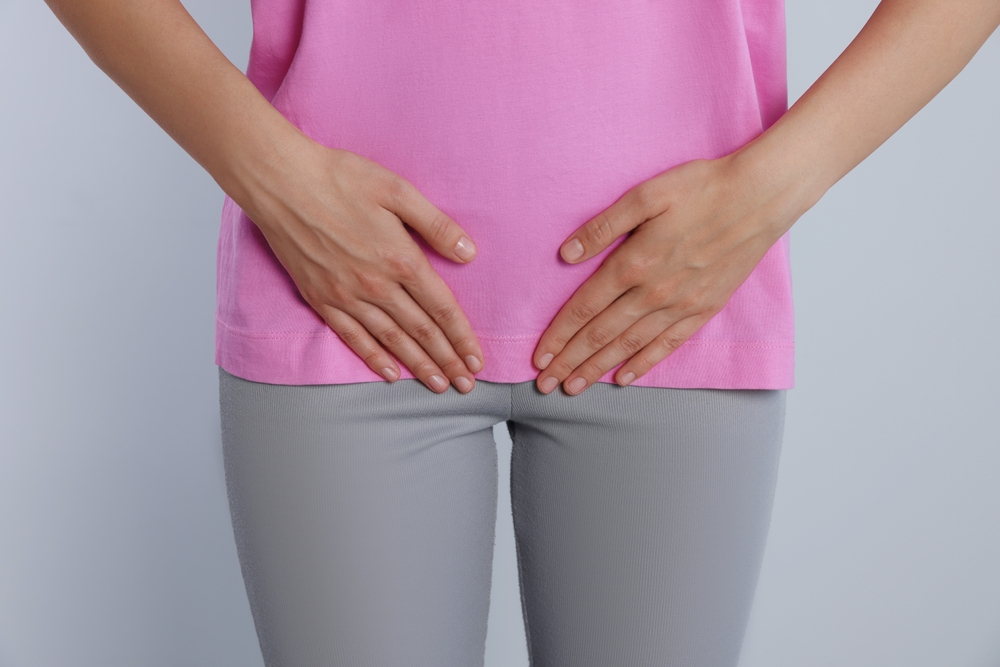In Australia, it’s estimated that about 75% of women may experience thrush at least once in their lifetime.1 This prevalent condition accounts for approximately 138,000 cases of vaginal thrush reported worldwide each year.2 Being aware of these statistics highlights the importance of staying informed and understanding how to manage this condition effectively for better health outcomes.
In this article, we’ll explore the definition, causes, symptoms, and diagnosis of vaginal thrush. More importantly, we’ll offer practical information on treatment options and preventative strategies to help you manage this condition and reduce the likelihood of recurrence. Are you ready to take a proactive approach to your vaginal health? Let’s get started.
What Is a Vaginal Thrush?
Vaginal thrush, also known as vulvovaginal candidiasis (VVC), is a common condition caused by the overgrowth of Candida yeasts or fungus, primarily Candida albicans, in the vaginal area. This naturally occurring yeast usually lives harmlessly in small amounts in the vagina. However, when certain conditions or factors disrupt the body’s natural balance, these fungi can multiply excessively, leading to infection.3
How Do You Get a Vaginal Thrush?
Vaginal thrush is an uncomfortable condition that can affect anyone, but being aware of the factors that increase susceptibility can empower you to manage and prevent it effectively. If you are asking yourself, “Why do I keep getting thrush?” some contributing factors may include:3,4
- Antibiotic use: Women who use antibiotics are at a higher risk of developing vaginal thrush because antibiotics are likely to reduce the levels of beneficial bacteria in the vaginal area, allowing yeast to take over.
- Pregnancy: Hormonal changes, like rising oestrogen during pregnancy, might disrupt the pH balance of the vagina, making yeast infections more likely.
- Uncontrolled diabetes: High sugar levels may promote yeast growth.
- Weakened immune system: Women with weakened immune systems due to conditions such as HIV or the use of immunosuppressive medications are more susceptible to infections, including thrush.
- Hormonal contraception: Some forms of hormonal contraception, such as combined oral contraceptive pills, might contribute to the risk.
- Sexual activity: While thrush is not classified as a sexually transmitted infection, it might sometimes be passed between partners through sexual contact.
- Poor hygiene: Inadequate vaginal hygiene may contribute to the conditions that foster yeast growth. Conversely, excessive washing or the use of harsh soaps and shower gels might also disturb the natural balance.
- Tight clothing and non-breathable materials: Wearing tight clothing or underwear made from synthetic fibres might create warm, moist conditions that encourage yeast growth.
- Diet and lifestyle: Diets high in sugar and refined carbohydrates might promote the growth of Candida. Similarly, excessive alcohol consumption may also contribute to its overgrowth.
If you suspect you have thrush or frequently experience episodes, it’s wise to consult your Australia-based healthcare professional, who can offer more personalised advice and anti-thrush treatment options.
What Are Vaginal Thrush Symptoms?
If you are asking yourself, “How do I know if I have a vaginal thrush? Or what does vaginal thrush look like?”, it typically produces a thick, white, odourless discharge with a consistency similar to cottage cheese. The vulva and vagina may appear red and swollen. Intense itching, burning sensations, and discomfort during urination or intercourse might be experienced too.4
Vaginal thrush diagnosis can be done through:4
- Physical examination: Your doctor may perform a pelvic examination to inspect the condition of your vagina and cervix.
- Sample testing: A swab of your vaginal discharge might be taken for lab tests to confirm the presence of Candida yeast.
How to Get Rid of Vaginal Thrush?
When it comes to dealing with the discomfort of vaginal thrush, it’s important to know that you’re not alone. While it’s important to see your doctor if symptoms persist, there are several options to get relief from vaginal thrush:
Quick home remedies for immediate relief from vaginal thrush4
Some might consider using suppositories or capsules with live probiotics to address vaginal thrush. These aim to restore the natural balance of vaginal flora. However, their effectiveness isn’t scientifically validated.
Other women might want to explore alternative methods like inserting garlic, special oils, or even yoghurt into their vagina. While these approaches are often shared anecdotally, it’s important to note that they haven’t been scientifically tested for safety or effectiveness.
Besides these home remedies, it is scientifically recommended to keep the vaginal area clean and dry, wear breathable cotton underwear, and avoid tight clothing, douching (washing inside your vagina), and scented hygiene products, which can disrupt the natural balance.
Remember, while home remedies might provide relief for some women, it’s always best to consult your Australian-based doctors or nurse practitioners, if you’re experiencing recurrent or severe symptoms. They can provide personalised advice tailored to your specific needs.
Over-the-counter treatments for immediate vaginal thrush relief
Over-the-counter antifungal medications offer quick relief through various formats like creams, suppositories, and oral medications. These treatments target the underlying fungal infection, helping restore vaginal health.4,5
Always consult your healthcare provider for personaliSed medical advice and proper diagnosis before starting any treatment. They can help determine the most appropriate option for your specific situation.
Prescription medications for vaginal thrush relief
When over-the-counter treatments aren’t effective, prescription medications offer targeted relief. Healthcare providers can prescribe stronger antifungal treatments tailored to your specific infection, including oral medications and topical creams.4,5
It’s important to always complete the entire course of any prescribed medication, even if you start feeling better. Doing so might help prevent the infection from coming back and ensure you maintain your health effectively. Need your thrush treatment delivered to your door today? Start here!
Immediate vaginal thrush relief while pregnant
Pregnancy might increase the risk of developing vaginal thrush. However, many antifungal medications, such as oral antifungal treatments, are not suitable during pregnancy.5
Clotrimazole pessaries, as well as internal and external creams, are generally considered safe to use during this period and while breastfeeding. Remember to wash your hands after applying it and before you pick up your baby.5
Consult with your doctor before using any medications, including over-the-counter treatments. They can recommend pregnancy-safe options if home remedies aren’t effective.
Wrapping It Up!
Vaginal thrush might be a recurring issue for many women, but with knowledge of its causes, symptoms, and treatment options, relief is possible. Choices range from home remedies like yoghurt to over-the-counter and prescription medications.
If symptoms persist or recur frequently, consult a healthcare professional for advice and to rule out underlying conditions. By taking proactive steps and seeking care, you can effectively manage vaginal thrush. Need to know where to buy thrush treatment in Australia? At hub.health, we’ve got you covered!
Frequently Asked Question About Immediate Vaginal Thrush Relief in Women
Here are some frequently asked questions about immediate vaginal thrush relief in women:
Is thrush a sign of pregnancy?
While thrush might occur during pregnancy due to hormonal changes, it is not considered a reliable sign of pregnancy. Many other factors might cause thrush, and not all pregnant women develop it. If you suspect you may be pregnant, it’s best to take a pregnancy test or consult your healthcare provider.8
Can tampons cause thrush?
Tampons alone may not cause thrush. However, using scented tampons or wearing them for too long might disrupt the natural balance of bacteria and yeast in the vagina, increasing the risk of developing thrush.7 To minimise this risk, choose unscented tampons and change them regularly.
How to prevent thrush while breastfeeding?
Thrush can be passed between a breastfeeding mother and her baby. To prevent this:6
– Wash your hands before and after breastfeeding
– Clean your nipples with a clean, damp cloth after each feed
– Air-dry your nipples after feeding
– If using breast pads, change them frequently
– Treat any signs of thrush promptly, in both yourself and your baby
If you or your baby develop symptoms of thrush, contact your healthcare provider for appropriate treatment.
Will the thrush go away by itself?
While mild cases of thrush may resolve on their own, it’s generally recommended to treat it promptly to alleviate symptoms and prevent complications. Untreated thrush might lead to more severe infections and potential health issues, especially in pregnant women, people with weakened immune systems, or individuals with underlying health conditions like diabetes.1
If symptoms persist or worsen after a few days of self-treatment, consult your healthcare provider for further evaluation and thrush treatment options.
References:
- Better Health Channel. Vaginal thrush. Vic.gov.au. Published 2012. https://www.betterhealth.vic.gov.au/health/conditionsandtreatments/vaginal-thrush
- (PDF) Global burden of recurrent vulvovaginal candidiasis: a systematic review. ResearchGate. https://www.researchgate.net/publication/326796737_Global_burden_of_recurrent_vulvovaginal_candidiasis_a_systematic_review
- Australia H. Vaginal thrush. www.healthdirect.gov.au. Published May 20, 2020. https://www.healthdirect.gov.au/vaginal-thrush
- Information NC for B, Pike USNL of M 8600 R, MD B, Usa 20894. Vaginal Yeast Infection (Thrush): Overview. Institute for Quality and Efficiency in Health Care (IQWiG); 2019. https://www.ncbi.nlm.nih.gov/books/NBK543220/
- Pregnancy, breastfeeding and fertility while using clotrimazole for thrush. nhs.uk. Published November 10, 2022. https://www.nhs.uk/medicines/clotrimazole-for-thrush/pregnancy-breastfeeding-and-fertility-while-using-clotrimazole-for-thrush/
- Thrush – Breastfeeding challenges – Start for Life. nhs.uk. Published June 13, 2023. https://www.nhs.uk/start-for-life/baby/feeding-your-baby/breastfeeding/breastfeeding-challenges/thrush/
- Are Scented Tampons and Pads Bad for You? Cleveland Clinic. https://health.clevelandclinic.org/are-scented-tampons-and-pads-bad-for-you
- Services D of H & H. Pregnancy – signs and symptoms. www.betterhealth.vic.gov.au. Published April 16, 2022. https://www.betterhealth.vic.gov.au/health/HealthyLiving/pregnancy-signs-and-symptoms





